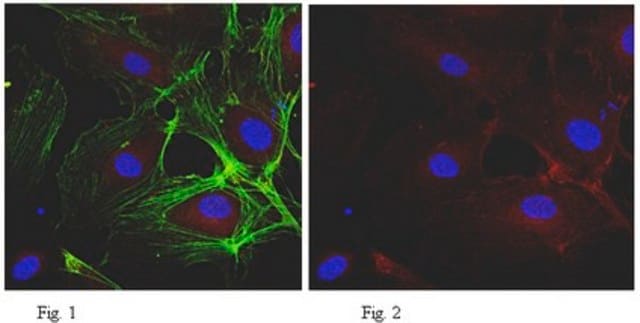V1514
Anti-VE-Cadherin (CD144) antibody produced in rabbit
affinity isolated antibody, buffered aqueous solution
Synonym(s):
Anti-CD144, Anti-Cadherin-5, Anti-Vascular Endothelial Cadherin
About This Item
Recommended Products
biological source
rabbit
Quality Level
conjugate
unconjugated
antibody form
affinity isolated antibody
antibody product type
primary antibodies
clone
polyclonal
form
buffered aqueous solution
mol wt
antigen ~130 kDa
species reactivity
human
technique(s)
immunohistochemistry (frozen sections): 1:100 using acetone-fixed sections of human tonsil
western blot: 1:500 using whole extract of human umbilical vein endothelial cells (HUVEC).
UniProt accession no.
shipped in
dry ice
storage temp.
−20°C
target post-translational modification
unmodified
Gene Information
human ... CDH5(1003)
General description
Immunogen
Application
- immunofluorescence imaging
- western blotting
- to weaken cell-cell junctions in human umbilical vein endothelial cells (HUVECs)
- immunohistochemistry
Biochem/physiol Actions
Physical form
Disclaimer
Not finding the right product?
Try our Product Selector Tool.
recommended
Storage Class Code
12 - Non Combustible Liquids
WGK
WGK 3
Flash Point(F)
Not applicable
Flash Point(C)
Not applicable
Certificates of Analysis (COA)
Search for Certificates of Analysis (COA) by entering the products Lot/Batch Number. Lot and Batch Numbers can be found on a product’s label following the words ‘Lot’ or ‘Batch’.
Already Own This Product?
Find documentation for the products that you have recently purchased in the Document Library.
Our team of scientists has experience in all areas of research including Life Science, Material Science, Chemical Synthesis, Chromatography, Analytical and many others.
Contact Technical Service







